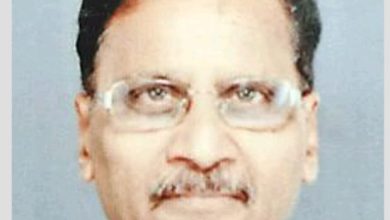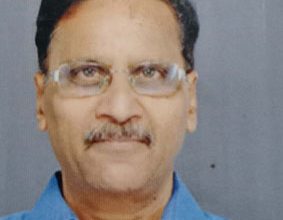Kerala women demand reforms in inheritance law

Dr. Duggaraju Srinivasa Rao
A kind of churning has begun in Kerala Muslim society with women coming out openly against the religion based personal laws imposed on them through the Mullah interpreted Sharia, which treats women as unequal in many ways, especially in inheritance of property from the parents. They ventured to form a Forum for Muslim Women’s Gender Justice (FMWGJ) and in the meeting held by the forum in the first week of March saw Muslim women pouring out their grievance against the injustice meted to them through archaic Islamic personal laws. Both educated and uneducated, under distress regarding their property rights, demanded that Muslim Personal Law (Shariat) Application Act, 1937 has to be reformed at once to protect them from losing their right to property.
The Kozhikode event and its resolution to reform or abolish the Muslim personal law is the outcome of simmering discontent in the hearts of Muslim women due to the suppression of their rights by the outdated religious laws. The Muslim women finally got the courage to unshackle their religious fetters and follow their Hindu sisters in challenging the suppressive beliefs and practices. Supreme Court verdict in the Sabarimala case where Hindu woman was given the right to have darshan of Lord Ayyappa, which was hitherto banned by tradition. The Muslim women felt encouraged by the commitment of the CPM lead Left Front government of Kerala, in implementing the SC verdict by siding with the right of Hindu women, and thought Pinarayi Vijayan government of LDF will stand by them. With the hope of garnering the support of ‘secular’, ‘progressive’ CPM the Forum (FMWGJ) invited their party leaders. But surprisingly the CPM has not stood by the FMWGJ but preferred to side by the Mullahs who are totally against any progressive law that favour women.
Some of the victims of discriminatory Muslim law who narrated their troubles include a 26 year old Muslim lady whose father died, intestate, due to covid leaving 20 crore worth property and 2 crore debt. She planned to sell some of the property to clear the debt but she couldn’t do that as her paternal uncles stalled the sale of property citing the Shariat. As per the law lone Muslim daughter, not having a brother, will receive only half of her father’s property while the rest of the property is divided between the brothers of the deceased, even though those brothers have no role in building that property. Thus brothers who never helped the man when he was sick suddenly became inheritors of the property upon his death. A Muslim widow, whose husband worked in Gulf and built house in Tanur village of Malappuram district, has three daughters and no son. The three daughters got married when the husband was live. Widowed, uneducated and is dependent on the income from the property, but she can’t sell that property to meet her needs as her husband’s brother is not willing to sign the sale documents citing Islamic inheritance law and claiming his share.
Sensing the troubles their three daughters likely to face on their death a Muslim educated couple from Kasargod district of Kerala ‘remarried’ themselves under the special marriage Act 1954, to get the equal status for their daughters and to avoid the provision of Sharait laws. The second marriage, after 25 years of their original Nikha as per Muslim tradition, has sparked a row in the Muslim society. Their public statement that they did that ‘remarriage’ to free them from the clutches of clergy controlled Islamic law of inheritance has led to a fight between conservatives and liberals of Kerala.
These three cases are only representative and many such effected Muslim families are many but are not venting out because of high community pressure. The orthodox Mullahs are against any changes in the personal laws of their religion as reform will weaken their hold on the community hence their vehement opposition to even simple discussion on any fora. In fact a reformist cleric who floated Khuran Sunnath Society and challenged the Muslim personal law was allegedly murdered in 1993 and his body remained untraceable so far. His reformist agenda was taken up by woman Suhara who impleaded herself in a special leave petition filed in the Supreme Court in 2015. As per the Khuran Sunnath Society the Muslim personal law is violated the Articles 14 (equality before law), 15 (prohibition of discrimination on the ground of sex), 19 (freedom of expression), 21 (protection of life and personal liberty) and 25 (freedom of conscience and free profession, practice and propagation of religion).
While the Supreme Court entertained a petition on the Sabarimala temple entry for women issue on similar grounds and ruled in favour of the woman, the Kerala High Court rejected the petition saying it was up to the legislature to enact a law to resolve the matter. Though the issue reached the Supreme Court their lordships are not showing any urgency to deliver its verdict. Meanwhile the another petition for the Common Civil Code is filed before the Supreme Court and it may not be decided in the near future despite the importance attached to that.
In the entire episode, the stance of the CPM lead left front government of Kerala is rather curious. The CM Pinarayi Vijayan who is close to the Sunni clergy of Kerala is reportedly vouched for the validity of the existing law of inheritance, though it hurts the interests of women in the society, and said he will not involve itself in any matter related to the Muslim personal law. His other statement questioning the criminalization of the instant divorce among the Muslim. The vote bank politics of CPM through its communal agenda can be gauzed from the statement of CPM state secretary M.V. Govindan giving the leverage for the Muslim community to self-reform and democratization. However the CPM is not known to such lenient attitude towards the issues concerning the Hindu society. That speaks volumes regarding the ‘progressive ruling of Left’ commitment to the women’s rights and its secular beliefs.
Following the support of the CPM lead LDF to the conservative Islamic laws, the Muslim clergy are issuing highly radical statements. They express their opposition to amend their religious laws. Their contention is that “Muslim personal law is based on the Quran and Prophet’s verses. None other than Allah can change the sharia. So there is no question of changing it to suit the times”. One of the clergy argued that law gave Muslim women the financial rights but not financial responsibilities but it is the man, either as brother or husband, who is bestowed with financial responsibilities by the Islam and this should not be questioned by women. By demanding reform of religion linked law, the women are siding with Kafirs to run down the Islamic sanctity and giving the image to Islam as the discriminatory religion biased against women.
Every religion feels that the Laws of their society is God given hence divine. However secular India rejected such divinity concept in case of other religions and hence the same rejection is needed for Muslim personal law argues Ramlath Pudusherry, the joint convener of FMWGJ. The codification of Hindu succession Act in 1956 and its amendment in 2004 to ensure daughter and sons get equal property in inheritance and bringing of Christians under the Indian Succession Act of 1925 ensuring that daughters and sons are equal shareholders are cited by FMWGJ to counter the Quran linked argument made by the orthodox clergy.
It is high time that Indian society supported the reformative movement initiated by the Kerala women and strengthen the idea of abolition of religion based laws and progressed toward the constitutionally mandated Uniform Civil Code for India.






